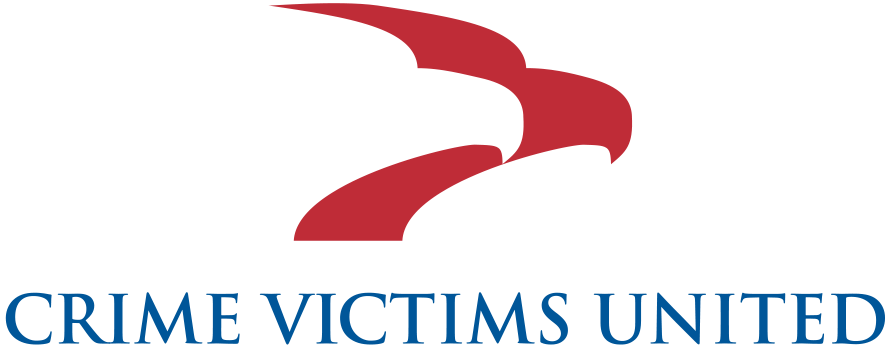Parole Hearings
The Board of Parole Hearings unilaterally implemented a policy change that devastates victims’ rights.
Under previous law, when an inmate has a 3-year denial before the next parole hearing, they were able to petition the Board to advance the hearing date based on the inmate providing evidence that there has been a significant change in circumstance.
This review was initiated by the inmate and an advanced date may or may not be granted based on the evidence presented.
As of October 1, 2013, the Board of Parole Hearings has implemented a new policy that the BOARD themselves will be pulling all inmate files within 3 years after just one year and conducting a review for possible advancement. This is being done without notice to the victims.
Crime Victims United contends that this is a clear violation of Marsy’s Law and obliterates the very protections we fought so hard to establish.
Crime Victims United has met with the Executive Director of the Board of Parole Hearings and has asked that this policy be stopped immediately. To date, this policy is still in effect.
We ask that you would contact Governor Gavin Newsome and ask him to immediately stop this policy of the Board initiating reviews as it is unfair to victims. Please write to him at:
The Honorable Gavin Newsome,
California State Governor
C/O State Capitol, Suite 1173
Sacramento, Ca 95814
Please join us as we continue to fight for victims’ rights.
IF YOU HAVE AN UPCOMING PAROLE HEARING
Many recent changes at the Board of Parole Hearings have had very negative impacts on victims as Board releases are at a high and there seems to be a shift in the view of the Board that inmates are now the victims. Prisoner rights groups are even being given access to attend parole hearings!
To that end, it is extremely important that victims assert their Marsy’s Law right for attorney representation at their parole hearings. This in no way is a substitute for victims appearing for themselves and having their voices heard, nor does it compete with the District Attorneys when they are able to appear. Rather, it compliments both, working side by side to both strengthen the victim’s voice and ensure public safety for all.
To find out about a parole hearing, you must let the Department of Corrections and Rehabilitation (CDCR) Office of Victim and Survivor Rights and Services know that you wish to be notified every time there is a parole hearing. You will want to make sure your name and contact information are correct and on file so that they will be able to notify you when a parole hearing is scheduled. You can contact the CDCR Office of Victim and Survivor Rights and Service Coordinator at 916-327-5933 or toll-free at 1-877-256-6877 or email ovssinet@cdcr.ca.gov
The Board of Parole Hearings is required by law to notify any victim of any crime committed by the inmate at least 90 days before a parole hearing ONLY if requested by the victim.
It is extremely important for you to attend the parole hearing in person. It is important for the commissioners to hear the impact on the victim and put a face to the victim.
The hearing itself is usually before one Commissioner and one Deputy Commissioner. The inmate may attend the hearing, however, their attendance is at their own discretion. They have the right to decide whether they will attend right up to the start time of the hearing. The county where the crime was committed may send a DA or DA Advocate. The victim or a representative for the victim (next of kin, spouse, parents, children, or family friends) has the right to attend the parole hearing. And as stated previously, under Marsy’s Law, the victim or next of kin now has the right to have an attorney present at the parole hearing to represent their interest.
We have seen several parole hearings in which there have been victims’ attorney representation and it has been successful in parole denials on all the hearings they have attended. The District Attorneys that have appeared at these hearings have expressed their pleasure at having an attorney present as the victim’s attorney.
It is good to have an impact statement prepared. The impact statement should speak from the heart and tell of how the crime has impacted your life even to this day. You should also speak about how your life will be impacted if the inmate is released. No one may interrupt you during your impact statement. Your statement should be short and focused. The statement should only be 2 pages and 2 -5 minutes. This is a new law under penal code section 3043 it is highly advised that you take a copy of this code with you in the event the commissioners are not aware of the new code. Have extra copies of your statement available for the DA or your attorney to provide to the commissioners and inmate attorney.
The order for speaking at the hearing is:
District Attorney (if present)
Inmate Attorney (if present)
Inmate (if present)
Victim (if present)
Victims Attorney (if present)
That the victim’s attorney is last to speak is key. It allows the victim’s attorney to focus on lies and mistruths told by the inmate. This has proven crucial in parole denials. District Attorneys have appreciated this as they are not allowed to speak again after the inmate.
After the Victims Attorney speaks, the commissioners will clear the room and deliberate. This can take an hour or more. When they are done, they will call everyone back into the room for their decision.
They can deny parole for 3, 5, 7, 10, or 15 years. They will explain their decision whether it is a denial or a grant and it will be recorded and made into a transcript that the victim has a right to a copy of. If parole is denied, the inmate may file an appeal. This process can take several months, however, if an appeal is granted, there will be a new hearing. If parole is granted it must be reviewed by the Board of Parole Hearings and ultimately the Governor before an inmate may be released. The inmate is kept in prison during this time. The process can take up to 4 months. You can write the Governor to ask him to deny the parole. You can also ask others to write letters on your behalf to the Governor asking him to deny the parole.
You may also want to cc the Governor’s Legal Affairs Secretary. The Governor’s contact info is found at http://gov.ca.gov/interact#contact
If the victim chooses to retain an attorney, it is crucial the attorney is well-versed in victims’ rights and Mary’s Law. We have run into Parole Board Commissioners who are not familiar with Marsy’s Law and have tried to deny the victim’s attorney to speak. This is why it is crucial that the attorney has extensive knowledge of the law and is able to cite the law and rights the attorney and victim have. It is absolutely imperative that the attorney specializes in victims’ rights and Marsy’s Law.
THERE IS NO SUBSTITUTE FOR VICTIMS TO PERSONALLY APPEAR AT THE PAROLE HEARING. However, with this new victim’s right of attorney representation for victims at a parole hearing, it does give the victim extra support.
ATTORNEYS SPECIALIZING IN PAROLE HEARINGS
The Law Office of Nina Salarno
130 Maple Street, Suite 100; Auburn, CA 95603
530-885-9584
Website: www.salarnolaw.com
Amy Terrible, Attorney at Law
210 S. Mooney Blvd. Ste. C; Visalia, Ca 93291
559-623-9696
Website: www.terriblelaw.com
Anthony Sarabia, Attorney at Law
3463 Tanglewood Ln; Rolling Hills Estates, Ca 90274-4131
310-377-5171
Website: www.calrestitution.com
PAROLE HEARING TRAVEL EXPENSE REIMBURSEMENT
As of May 2010, OVSRS has funds available through a federal grant which allows for a travel voucher, up to $100, to a limited number of victims for costs associated with travel to parole hearings.
Costs covered under this voucher include lodging, meals, transportation, and incidentals up to $100.00 total.
You will need to complete a Travel Expense Claim and an Oath of Allegiance & Declaration of Permission to Work form. Some of the information you will need for these forms include:
Month/year of the hearing you went to.
Date of hearing – approximate time of the hearing
Location of hearing – Prison name and city
Purpose of the trip – please write in To Attend a Parole Board Hearing for Inmate _____ with CDC Number______.
If you drove your car, your vehicle license number
The mileage rate is already a set rate of $0.500 cents.
You must submit original receipts with your forms so be sure and save your receipts.
More information and all the forms can be found at the Office of Victim Services webpage at: http://www.cdcr.ca.gov/Victim_Services/travel-voucher.html or call (877)-256-6877 Extension 2 or Extension 3.




